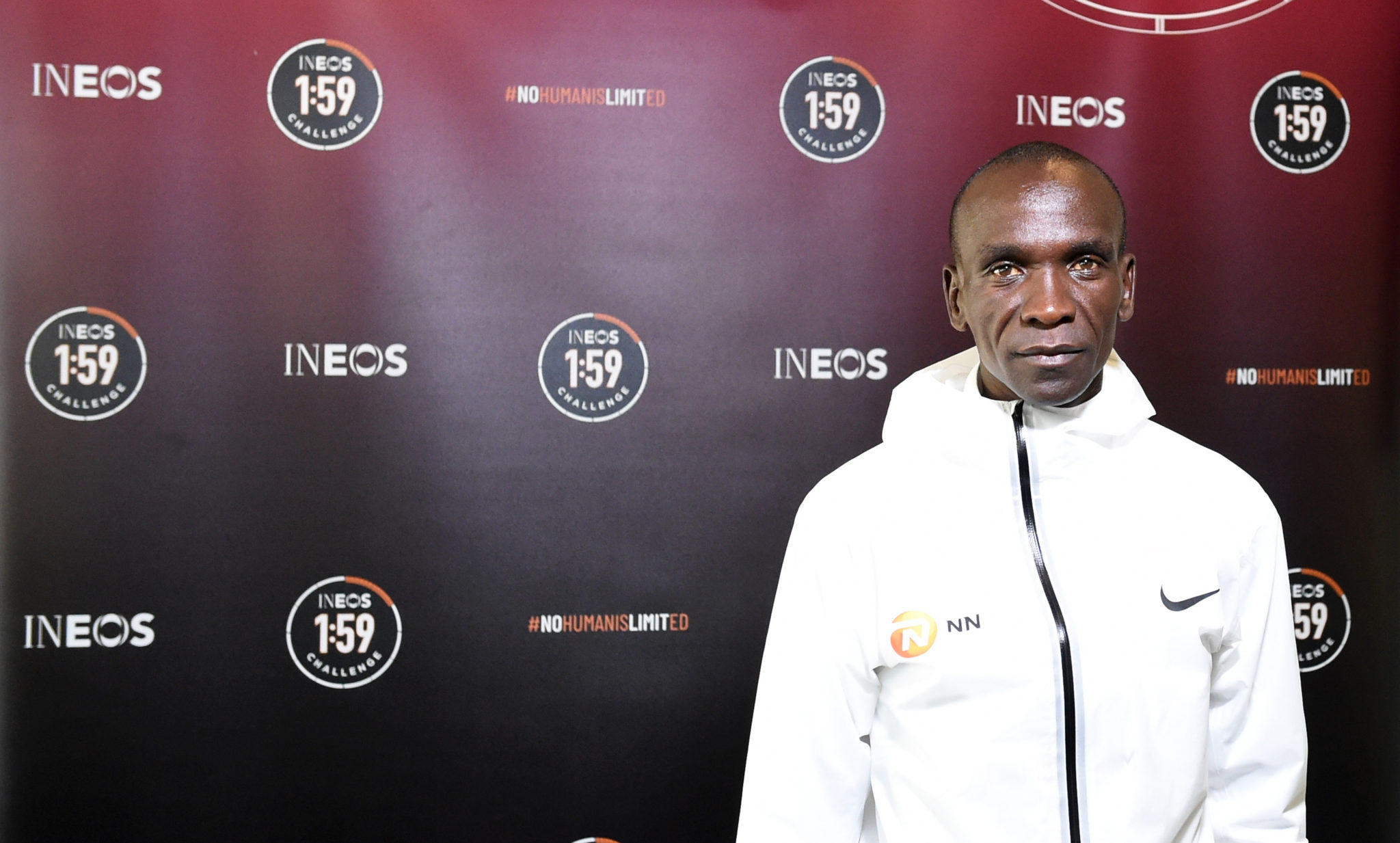As Eliud Kipchoge attempts to run a sub-two-hour marathon in Vienna on Saturday, Cathal Dennehy considered the circumstances surrounding the INEOS 1:59 Challenge on Friday's OTB AM.
It is indicative of the strange circumstances surrounding this challenge that no starting time for this run has yet been announced.
This becomes all the more confusing when one considers that Eliud Kipchoge's attempt at running a marathon in less than two hours will occur tomorrow, Saturday, October 12.
"The start window is currently scheduled for 5:00 am - 9:00 am CEST," the website promoting the INEOS 1:59 Challenge states, highlighting the overarching efforts on behalf of organisers to control each and every variable for what would be the first sub-two-hour run recorded.
Indeed, it was only on Wednesday when news came through that the day itself had been selected; Saturday morning the chosen date from what had been a 10-day longlist.
"In my mind, Eliud Kipchoge is going to break the two-hour marathon tomorrow," declared Cathal Dennehy on Friday's OTB AM.
The world-record holder for the fastest marathon run recorded (2:01.39), Kipchoge's run on Saturday will not constitute an official attempt at breaking his own record, however.
"He's using teams of pacemakers," explained Dennehy, "41 world-class athletes who are going to sub in and out.
"Five in front of him and two just behind him to ensure he's going to be basically running in the middle of an X."
One feature of the 1:59 Challenge that disqualifies it from official contention, Dennehy outlined the immense detail that has and will continue to go into aiding Kipchoge's attempt.
"The only other rule their breaking is that you're meant to pick drinks up off a table," he noted of the IAAF's usual marathon protocol, "but he's having them handed to him on a bike.
"As soon as he takes a drink and throws the bottle away, a nutritionist is going to pick up that bottle and measure exactly how much he has drunk and feed back to him that he needs to drink whatever amount in this amount of time."

Considered the greatest marathon runner the event has witnessed, 34-year-old Eliud Kipchoge claimed gold at the 2016 Rio Olympics.
Setting his world-record time in the Berlin Marathon last year, Dennehy explored an additional aspect of Kipchoge's performances that few other athletes can replicate; his shoes.
"It's technological doping, really," he noted of Kipchoge's involvement with Nike and their tailor-made running shoes for the Kenyan's benefit.
"They have the best minds in the world working on making the fastest shoes in the world.
"The way they do it is a bit dubious because it came out early in 2016, and the prototype was only given out to their special few. Other Nike athletes even who are professional athletes still don't get this certain shoe.
"They have a mass-market version of this shoe that you can buy for about €300, but the ones the elites wear is a different shoe personalised for them and is far more effective."
Nike's 'Next%' shoe is a follow on from their '4%' model that has been seen to sizably improve a runner's performance.
Given its exclusivity to a select few Nike-sponsored athletes, though it is perhaps the most decisive tool in Kipchoge's attempt to break the two-hour mark, it remarkably remains one aspect of the 1:59 Challenge that would provide no legitimate cause for concern in an official race.
"The way the rule is written by the IAAF says that any technology which comes along has to be freely available," outlined Dennehy, "[but] this was never freely available.
"I emailed Nike during the week about it to see if they could tell me anything about the shoe, there was no return.
"The shoe is the main game-changer here."
Download the brand new OffTheBall App in the Play Store & App Store right now! We've got you covered!
Subscribe to OffTheBall's YouTube channel for more videos, like us on Facebook or follow us on Twitter for the latest sporting news and content.







